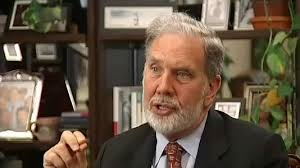Stephen Hawking; back under the international spotlight after the spectacular success of the "Theory of everything" and Eddie Redmanye's Oscar win, recently stated that if he could correct one human flaw, it would be aggression. He suggested that greater empathy could counter the ill-effects of aggression on our race. While empathy, as a component of emotional intelligence, has been part of organizational studies for quite some now, the recent rise of senseless violence across the world has brought it into the forefront of discussion in the media. Nicholas Kristoff's recent NYT article being a case in point. Empathetic leadership is the need of the hour, especially in the context of the soaring inequality worldwide.
Which is all the more reason to make a case for the importance of a liberal arts education for successful leaders. A fascinating study by two New School professors indicates that reading literary fiction improves our empathy because the characters in them are multi-faceted, and their plots are often ambiguous giving us no black and white solutions. A good leadership education must therefore involve reading beyond the contemporary best selling business books often written by authors with no business credentials. Barbara Kellerman's remarkable book Leadership: Essential Selections on Power, Authority, and Influence, based on her successful course in the Kennedy School of Government at Harvard, is a good place to start for those looking to become leadership literate (literally).
Which is all the more reason to make a case for the importance of a liberal arts education for successful leaders. A fascinating study by two New School professors indicates that reading literary fiction improves our empathy because the characters in them are multi-faceted, and their plots are often ambiguous giving us no black and white solutions. A good leadership education must therefore involve reading beyond the contemporary best selling business books often written by authors with no business credentials. Barbara Kellerman's remarkable book Leadership: Essential Selections on Power, Authority, and Influence, based on her successful course in the Kennedy School of Government at Harvard, is a good place to start for those looking to become leadership literate (literally).







